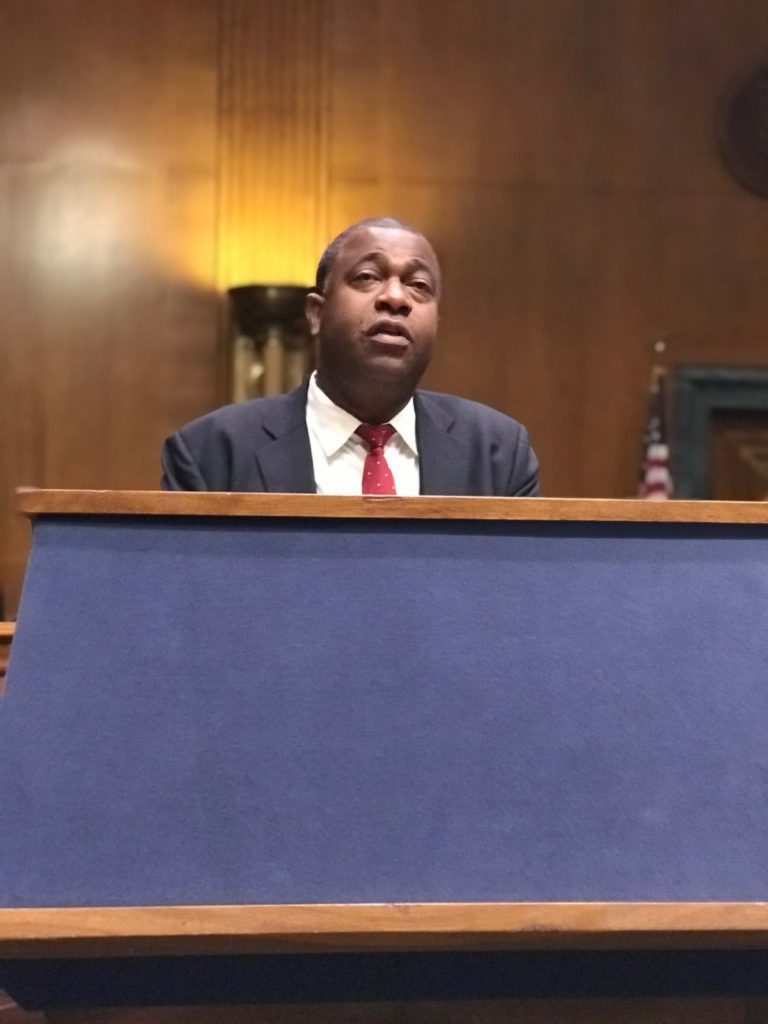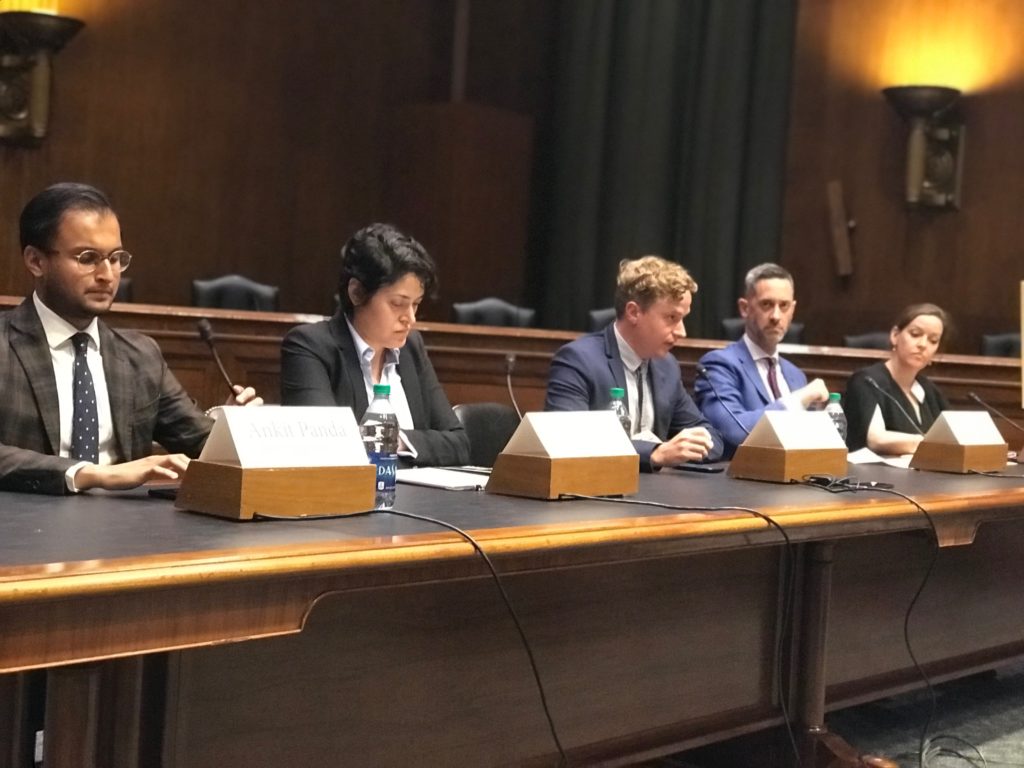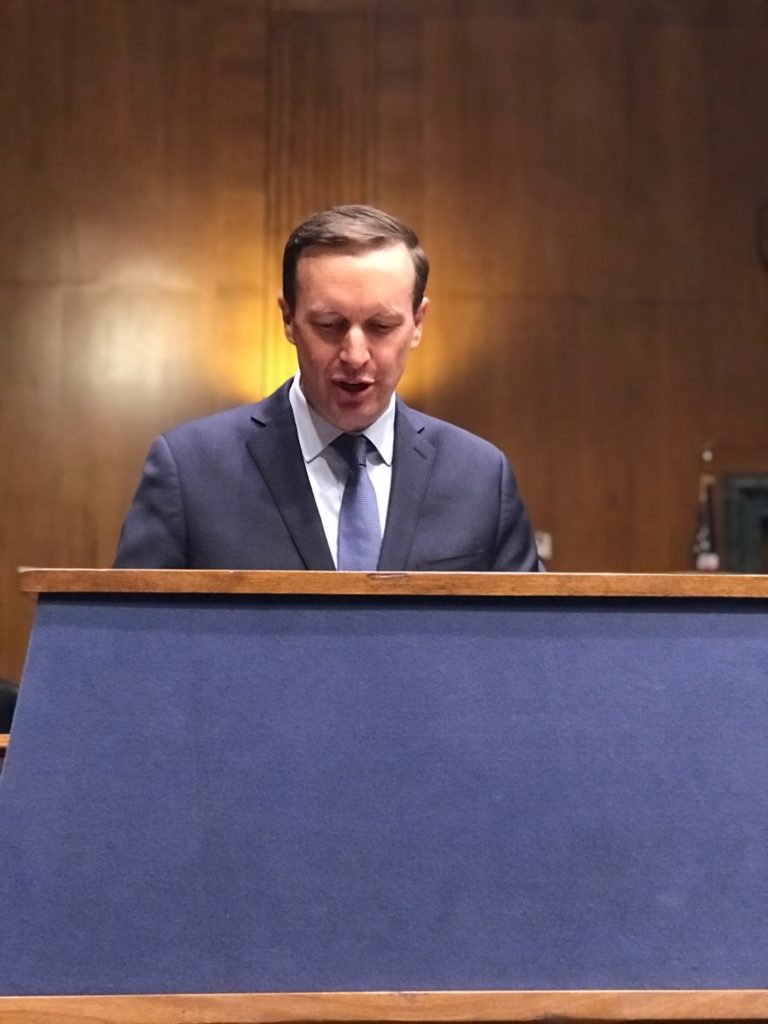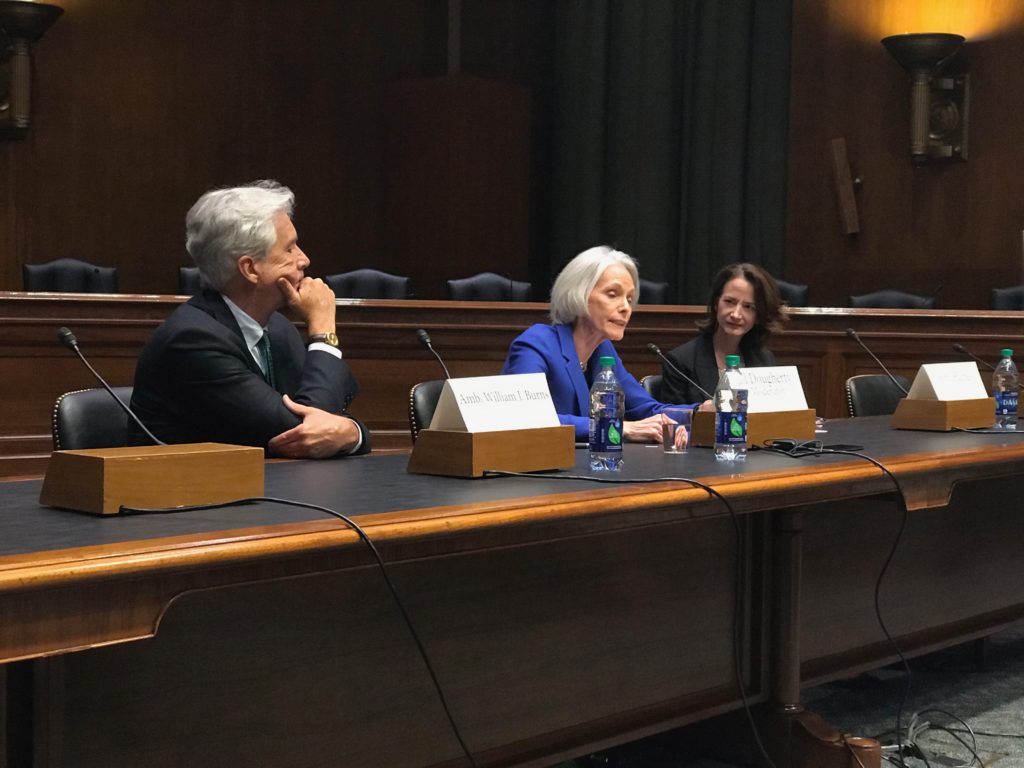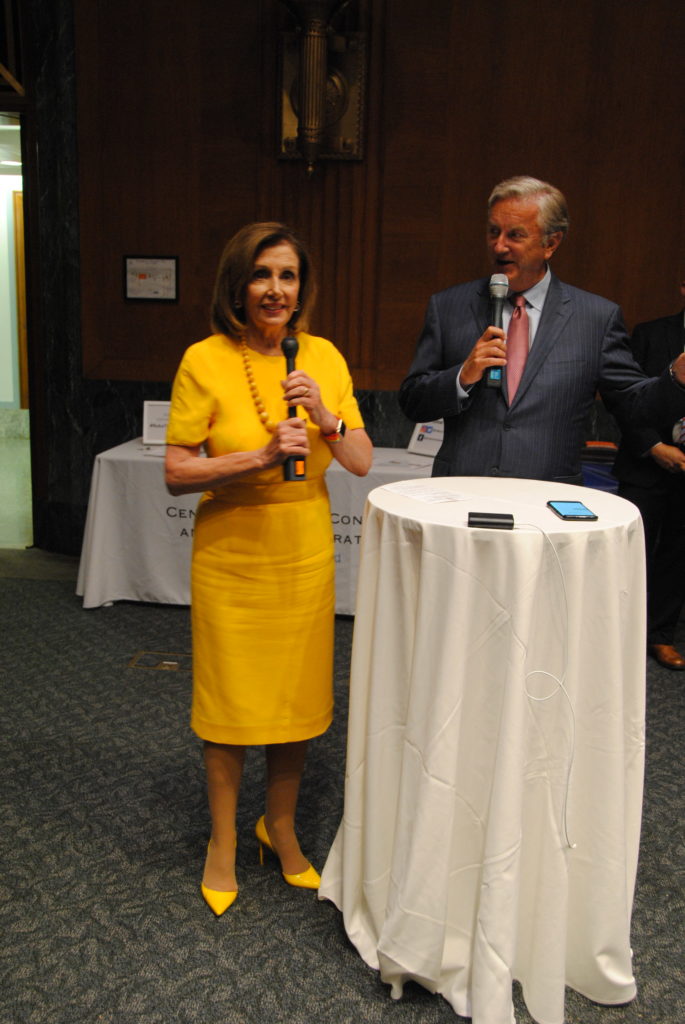By Anna Schumann
On July 24, the Center held its annual conference: Managing Global Nuclear Threats, widely attended and streamed online by Congressional staffers, nuclear policy experts and other interested parties.
Board member Spencer Boyer began by welcoming the audience and setting the stage for what the upcoming conversations would hold.
The first panel, moderated by the Washington Post’s John Hudson, featured:
- Ankit Panda, Adjunct Senior Fellow in the Defense Posture Project, Federation of American Scientists
- Ariane Tabatabai, Associate Political Scientist, RAND Corporation
- Richard Johnson, Senior Director for Fuel Cycle and Verification, Nuclear Threat Initiative
- Alexandra Bell, Senior Policy Director, Center for Arms Control and Non-Proliferation.
Panda spoke on the need for the rest of the world to take the potential for conflict between India and Pakistan, two nuclear powers, seriously. Tabatabai said she doesn’t see the Iran Deal collapsing immediately, but “if we’re not careful, we could very well see it on life support.” Johnson said that without “serious and technical diplomatic-level processes, we will not see progress” on Korean non-proliferation and disarmament agreements. Bell lamented over the state of US-Russian nuclear relations with the imminent collapse of the Intermediate-Range Nuclear Forces (INF) Treaty and the need to extend the New Strategic Arms Reduction Treaty (New START).
Senator Chris Murphy (D-CT) spoke on the need for Congress to get United States defense spending in check and to reaffirm its commitment to international nuclear agreements. He addressed New START, the INF Treaty, the Iran nuclear agreement, North Korea and more.
At the keynote address, moderated by Jill Dougherty, Global Fellow, Kennan Institute, Woodrow Wilson Center and former CNN Moscow Bureau Chief, Ambassador William Burns, President of the Carnegie Endowment for International Peace and former U.S. Deputy Secretary of State also reiterated the importance of extending New START, noting that the alternatives to not extending it are for worse than any potential consequences of extending it. Avril Haines, Deputy Director of Columbia World Projects and Former Principal Deputy National Security Advisor to President Obama, explained that the United States can’t manage the threats it faces today alone, but must work with other countries; the way to prepare the groundwork in advance rather than to be reactive, is through international agreements.
Finally, House Speaker Nancy Pelosi (D-CA) said that preventing nuclear war is “the ultimate environmental issue.”
Watch the full video | Watch Senator Chris Murphy’s remarks | Watch Speaker Nancy Pelosi’s remarks
